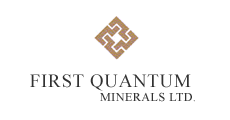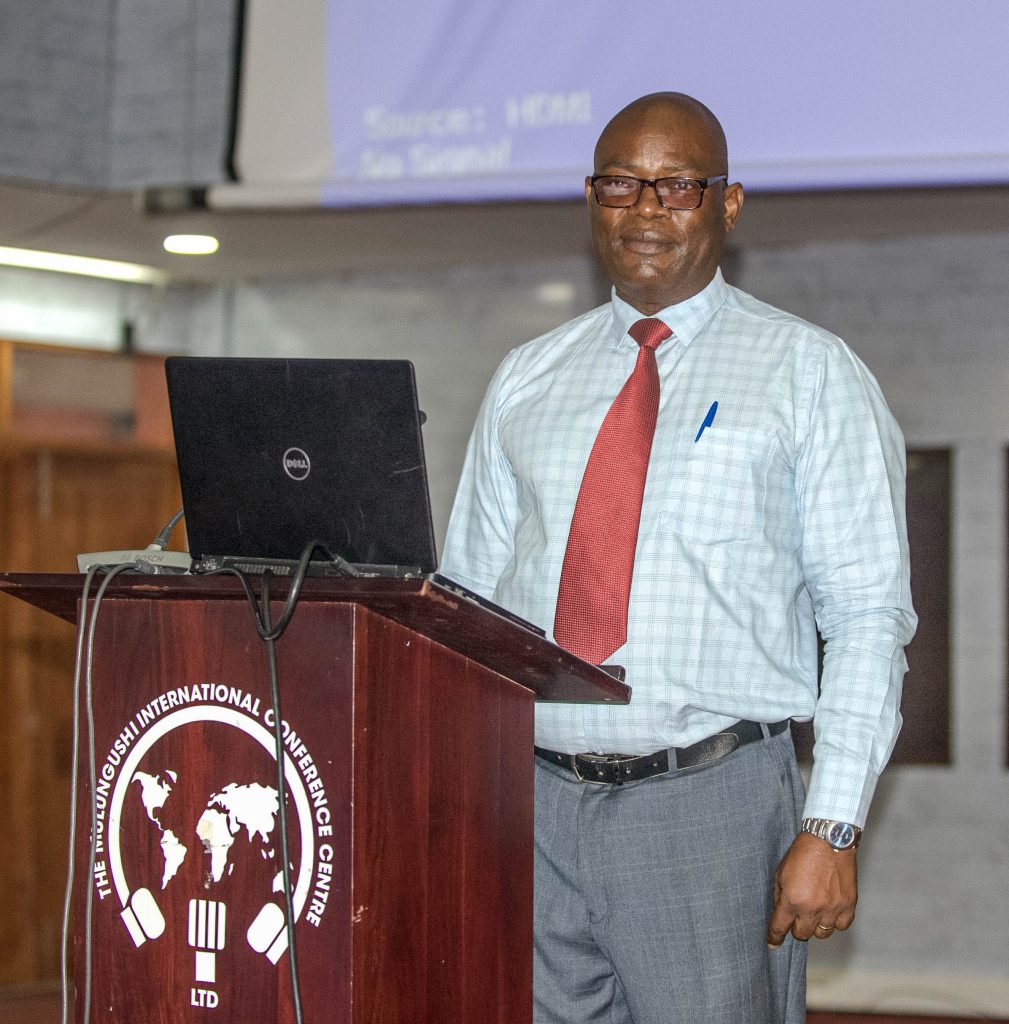
FOR IMMEDIATE RELEASE
WITH PICTURE
IMPROVED LITERACY KEY TO ADDRESSING LACK OF SKILLS AMONG LOCALS – FQM

LUSAKA, ZAMBIA – First Quantum Minerals has said that Zambia’s education system needs to change the teaching methods from their current state and aim to develop 21st-century skills in learners rather than abstract knowledge to be reproduced in tests and examinations.
The mining firm has observed that as the business world continues to push the boundaries of automation, long-term solutions are required to address the prevailing skills and knowledge gap among the local population.
The company further noted that the situation had been exacerbated by low literacy levels across the country resulting in a shortage of skilled and qualified employees in local industries.
“There is, to a small extent, a corporate need. It is important that there is a body of highly educated people out there from which we can draw our human resources,” said Dr Onward Mandebvu, Head of Education at FQM’s Kansanshi Mine Corporate Social Responsibility Department.
He was speaking during the 12th Biennial Pan-African Literacy For All (PALFA) Conference, which was held under the theme: “Repositioning Literacy in the context of emerging challenges and opportunities for Africa.”
Over the years, the PALFA platform has grown in scope and consequence; bringing together government institutions, researchers, educators, publishers, librarians, international development workers, and donor agencies from across the globe to interface and collaborate on literacy development for Africa.
Dr Mandebvu further said that during the mining firm’s education strategy development phase in 2012, desk and empirical studies revealed that among the biggest factors affecting literacy levels in communities surrounding its mining operations were severe teaching and learning resource constraints with textbook to pupil ratios upward of 1:20, virtually no supplementary readers, as well as inordinate teacher-pupil ration of more than 1:80.
“Therefore, we decided to focus the Kansanshi Foundation Education Support Programme on pre-primary and primary education to contribute towards strengthening the foundation. We have 33 schools in and around Solwezi town that we support. And that number is about 52 percent of the schools that are now in the new Solwezi District.”
“In our understanding, education is one of the most effective ways of empowering a people and a nation. So, we strongly believe that if we invest in the education of the people in Solwezi, we are contributing to long-term, lifelong improvement in the lives of our community,” he explained.
He added that First Quantum Minerals’ efforts to improve education standards and advance literacy levels are framed by a broader vision of how corporate support can have the most impact, noting that under its School Improvement Programme, the company was also supporting a Continuous Professional Development (CPD) programme, where teachers are provided with training on modern teaching methods with action plans on implementation.
“Literacy development requires appropriate resources. We are only eight years away from 2030, and our development aspiration as Zambia, and Africa in general hinge on our ability to produce from our education systems people that are literate in this broad conception of literacy.”
And according research by Plan International UK, “Lacking basic reading and writing skills is a tremendous disadvantage. Literacy not only enriches an individual’s life, but it creates opportunities for people to develop skills that will help them provide for themselves and their family.”
From 2013 to date, FQM through its Kansanshi Foundation has supplied more than 120,000 textbooks in the core subjects of Mathematics, English, Science, and Social studies to 33 schools, and changed the textbook pupil ratio from 1:40 to 1:4.
The company has also trained and provided field-based implementation support to virtually all teachers in primary schools (540) in improved methods of teaching and provided access to the computer laboratory at its training centre to schools to help improve their pupils’ computer literacy. To date, over 3,500 pupils have benefitted from the facility.
The company believes in contributing to quality education as outlined in the United Nations Sustainable Development Goal number four through infrastructure development, teacher training, provision of materials and scholarships for learners at primary, secondary, and tertiary levels.
-Ends-
About First Quantum Minerals Ltd
First Quantum Minerals Ltd is a global metals and mining company producing mainly copper, gold and zinc. The company’s assets are in Zambia, Spain, Mauritania, Australia, Finland, Turkey, Panama, Argentina and Peru.
In 2020, First Quantum globally produced 779,000 tonnes of copper, 265,000 ounces of gold and 13,000 tonnes of nickel.
In Zambia it operates the Kansanshi mine – the largest copper mine in Africa by production – and smelter and the Sentinel mine in Kalumbila.
The company is listed on the Lusaka and Toronto stock exchanges.
http://www.first-quantum.com/
For media inquiries please contact:
Gillian Langmead at Langmead & Baker Ltd;
+260 979 060705;
info@langmead.com

For sure 21st century skill are a must if our products of education are to be relevant to the current market demands.
Good evening
My names are Giggy Katontoka Chairperson for Chirundu Youth Tax Advocates Club.
I’m seeking your office to arrange for us for an appointment so that we can show case ourselves with our objectives.
See in brief of who we are and our ojectives
As a youth club we discovered that in Zambia there is low tax Compliance in Zambia especially on informal businesses and SMEs which form larger entity in tax remmitance. This has led to high tax rates to few tax payers and big companies.
We are aimed at Sensitizing the people of Zambia on the importance of tax remmitance to government through ZRA.
Tax Compliance begins with registration of businesses and companies with PACRA and ZRA.
For the people of Zambia to understand this concept so that bits natured atTender age we approached and proposed to Ministry of Education to consider introducing Entrepreneurship and Tax Education as Compulsory subject in Schools of which our proposal was welcome and accepted, and they requested our Club to come up with a content so that it can immediately implemented in schools..
Youth tax Advocates Club is a REGISTERED non profit making Organization which it’s source of funds is from members contributions, fundraising and donations from well wishers.
To come up with a quality content which will last a test of time and be used by the coming generation and bear tangible results, we are engaging technocrats from all angles of education including from special schools.
From inception up to pilot stage of the subject content we budgeted for K200,000
Henceforth we are requesting for any contribution towards our budget.